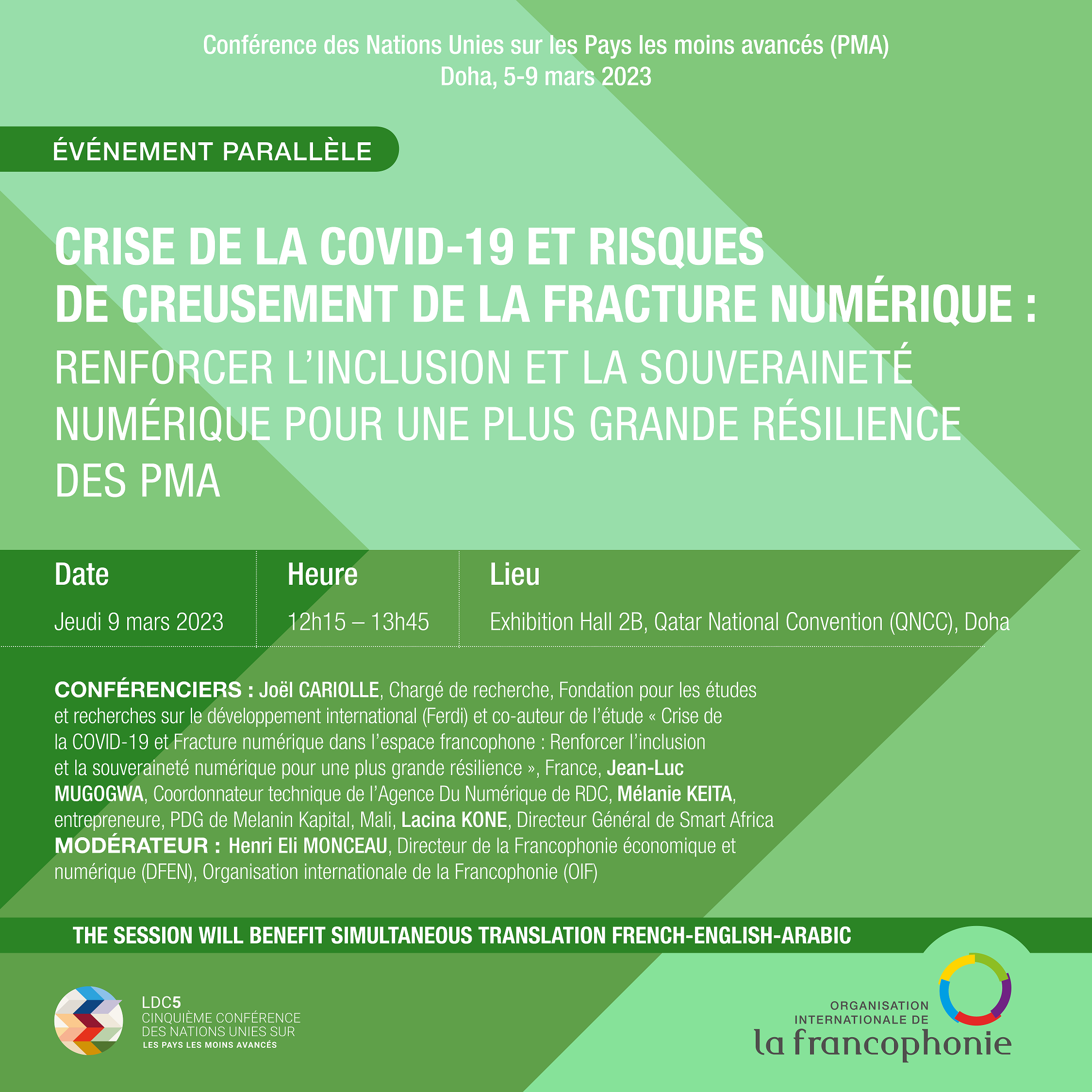Objective of the session: Presentation of the main findings of the 2021 study on the Covid-19 crisis and the digital divide in French-speaking countries, led by OIF and co-edited with FERDI.
The study reveals a link between the development of digital technologies and the reduction of economic vulnerability in least developed countries in the context of the Covid-19 crisis. It shows the reality of the digital divide, despite the abundance of mobile phones: only 26% of the population in the least developed countries has access to the Internet, compared to 90% in the developed countries (datas from the Measuring digital development Facts and figures 2019, ITU Publications, ITU, 2019 et Measuring digital development Facts and figures 2022, ITU Publications, ITU, 2022).
The study also demonstrates how the digital divide increases socioeconomic inequalities in the pandemic context, further accentuating the structural vulnerability of LDCs.
In light of these results, researchers provide recommendations, including the implementation of an accelerated digital transition to enable LDCs to strengthen their resilience.
This round table gathered major actors from the public and private sectors, influential representatives of French-speaking states and institutions, and took place in two rounds:
Joël CARIOLLE, Reseach Officer, FERDI, and co-author of “COVID-19 crisis and digital divide in the Francophone Space : strengthening inclusion and digital sovereignty for greater resilience”
Cina LAWSON, Minister (or her representative) of Digital Economy and Digital transformation, Togo
Anne-Rachel INNE, Director of Bureau Régional Afrique, UIT (Union Internationale des Télécommunications)
Henri VERDIER, Digital ambassador, France
Lacina KONE, Managing Director of Smart Africa
Moderator : Henri MONCEAU, Director of Direction de la Francophonie économique et numérique (DFEN), Organisation internationale de la Francophonie

During the LDC5 Conference in Doha, world leaders will gather with the private sector, civil society, parliamentarians, and young people to advance new ideas, raise new pledges of support, and spur delivery on agreed commitments, through the Doha Programme of Action. At the Conference, it is expected that specific initiatives and concrete deliverables will be announced that will address LDC-specific challenges.
Over the years, FERDI has contributed to the international debate on LDCs, including at the United Nations. In particular, Ferdi was a member of the LDCIV Monitor consortium, responsible for producing an independent and complementary evaluation of the official monitoring of the United Nations Programme of Action. The Foundation advocates for the inclusion of vulnerability and the specificity of vulnerable countries in the international development agenda.

